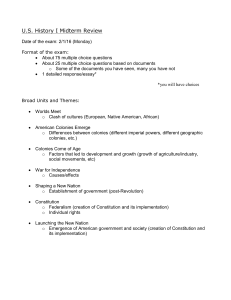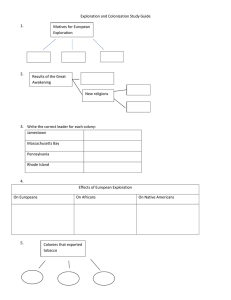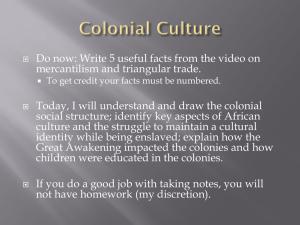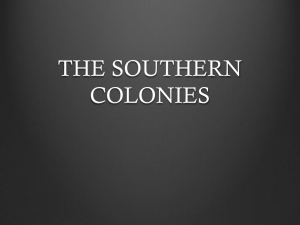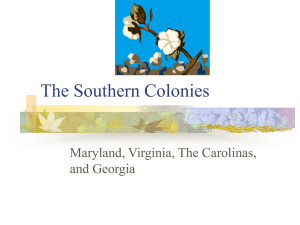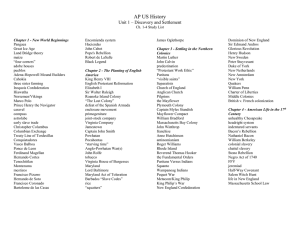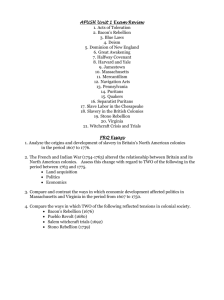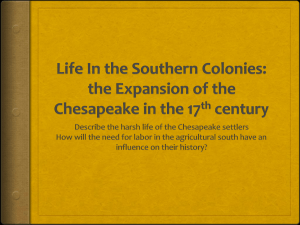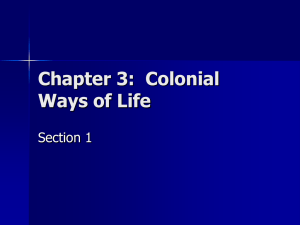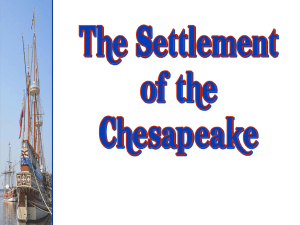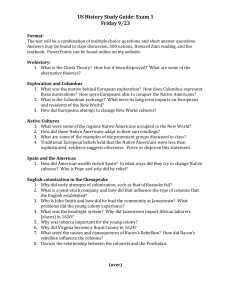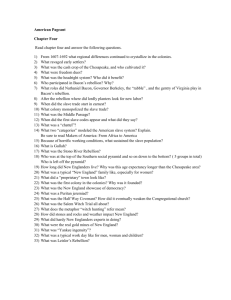Unit 1 test review
advertisement
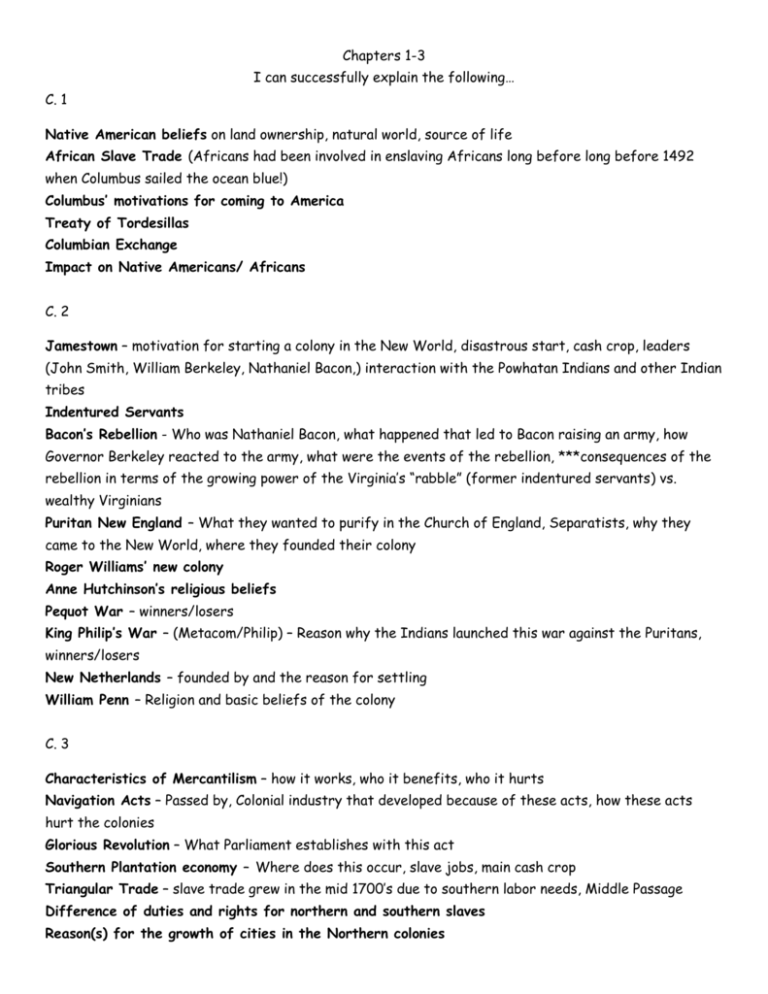
Chapters 1-3 I can successfully explain the following… C. 1 Native American beliefs on land ownership, natural world, source of life African Slave Trade (Africans had been involved in enslaving Africans long before long before 1492 when Columbus sailed the ocean blue!) Columbus’ motivations for coming to America Treaty of Tordesillas Columbian Exchange Impact on Native Americans/ Africans C. 2 Jamestown – motivation for starting a colony in the New World, disastrous start, cash crop, leaders (John Smith, William Berkeley, Nathaniel Bacon,) interaction with the Powhatan Indians and other Indian tribes Indentured Servants Bacon’s Rebellion - Who was Nathaniel Bacon, what happened that led to Bacon raising an army, how Governor Berkeley reacted to the army, what were the events of the rebellion, ***consequences of the rebellion in terms of the growing power of the Virginia’s “rabble” (former indentured servants) vs. wealthy Virginians Puritan New England – What they wanted to purify in the Church of England, Separatists, why they came to the New World, where they founded their colony Roger Williams’ new colony Anne Hutchinson’s religious beliefs Pequot War – winners/losers King Philip’s War – (Metacom/Philip) – Reason why the Indians launched this war against the Puritans, winners/losers New Netherlands – founded by and the reason for settling William Penn – Religion and basic beliefs of the colony C. 3 Characteristics of Mercantilism – how it works, who it benefits, who it hurts Navigation Acts – Passed by, Colonial industry that developed because of these acts, how these acts hurt the colonies Glorious Revolution – What Parliament establishes with this act Southern Plantation economy – Where does this occur, slave jobs, main cash crop Triangular Trade – slave trade grew in the mid 1700’s due to southern labor needs, Middle Passage Difference of duties and rights for northern and southern slaves Reason(s) for the growth of cities in the Northern colonies Enlightenment – type of movement, Ben Franklin The Great Awakening – type of movement, Jonathan Edwards C.3 cont. Northern colonies - Major industries and cash crops produced per farm Southern colonies – Major industries and people who live there The role of colonial women – in the north and south, lower class white women Sectionalism – what it is and how it will affect the future of US History. Sourcing – 5 W’s Who/ where/ when/ why /what/ know how to source a document.
